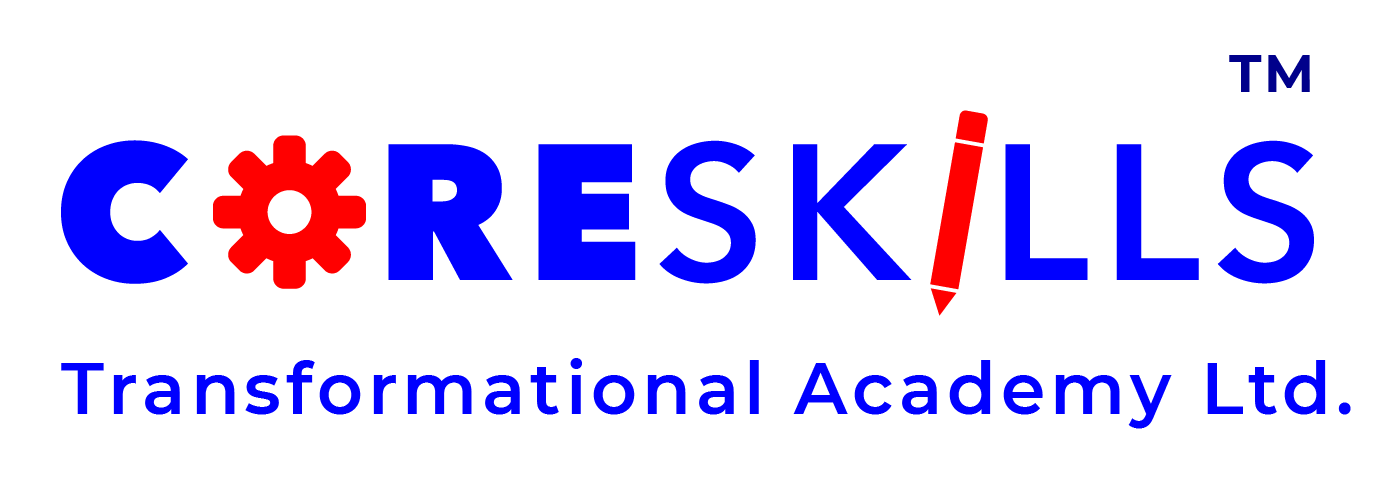Education Consultant Certification Program (Level 2)
- Description
- Curriculum
- Reviews
- Grade
Education Consulting Certification Program
LEVEL 2 ( Full time Consultants 1-5 years)
Certification Consulting Program Level 2
Mid-Level Education Consultants:
Role: Responsible for managing independent projects, working with schools, educational institutions, or government agencies to improve learning outcomes. May lead workshops, assess curriculum, and advise on technology integration.
Qualifications: Master’s degree in education or related field; at least 3-5 years of experience in teaching, administration, or consulting.
Skills: Project management, instructional design, leadership, and strategic planning.
Program Overview
Objective:
To equip senior consultants with the skills and knowledge required for educational consulting, enabling them to effectively support educational institutions and drive positive outcomes in learning environments, private and public schools,homes and other educational establishments.
Duration:
Eight weeks
Structure:
The program is structured into weekly modules, each combining theoretical knowledge with practical application. Participants will engage in various activities, including case studies, discussions, and hands-on exercises, to reinforce their learning and prepare them for real-world consulting scenarios.
Welcome Session: Overview of the program structure, goals, and learning outcomes.
Welcome Session: Overview of the Program Structure, Goals, and Learning Outcomes
Objective:
To provide participants with a clear understanding of the program’s structure, the goals they are expected to achieve, and the learning outcomes they will gain by the end of the program.
1. Introduction to the Program Structure
-
Duration and Format:
-
The program spans ten weeks, with each week dedicated to a specific module.
-
Sessions will include a mix of self paced online video sessions, discussions, case studies, and practical exercises.
-
Participants are expected to complete weekly assignments and actively engage in group activities.
-
Weekly Modules:
-
Each week will cover different aspects of educational consulting, starting from foundational knowledge to advanced consulting strategies.
-
The program is designed to gradually build participants’ expertise, ensuring they gain both theoretical and practical skills.
-
Program Logistics/Assessments:
-
Participants will be evaluated through a combination of quizzes, assignments, and a final project.
-
Feedback will be provided throughout the program to guide participants’ progress and development. Overview of the weekly schedule
-
Setting Personal Learning Goals: Participants will set individual goals for what they hope to achieve by the end of the program.
2. Program Goals
-
Skill Development:
-
Equip participants with the essential skills needed to excel in educational consulting, including strategic planning, stakeholder engagement, and problem-solving.
-
Knowledge Acquisition:
-
Provide a deep understanding of the educational landscape, including current trends, challenges, and opportunities for consultants.
-
Practical Application:
-
Enable participants to apply their learning to real-world scenarios, preparing them to effectively support educational institutions.
3. Learning Outcomes
By the end of the program, participants will be able to:
-
Evaluate market needs and identify a specialized niche in education consulting that aligns with your expertise, allowing you to create a tailored business plan to meet specific client demands.
-
Design a comprehensive consulting business structure that integrates strategy, operational systems, shared values, and staffing to ensure sustainable growth and effective service delivery.
-
Develop and justify a pricing model for education consulting services that reflects market rates, client needs, and business goals, while maintaining profitability and competitiveness.
-
Formulate a step-by-step action plan to successfully launch and grow an education consulting business, considering legal, operational, and strategic elements for long-term success.
-
Critically assess proposal writing and contract negotiation strategies, applying them to secure new clients and manage client expectations effectively.
-
Analyze the recruitment process for education consultants, identifying key skills and competencies required to hire the right talent and build a capable consulting team.
-
Create tailored consulting strategies for startup schools, addressing the unique challenges and opportunities they face, to help them achieve operational and academic success.
Design a marketing and client acquisition strategy that leverages digital tools, networking, and branding techniques to attract and retain clients while establishing a strong online presence.
-
21.1: Conducting Market Research and Defining Your Niche1.1: Conducting Market Research and Defining Your Niche
-
31. 2: Building Your Unique Selling Proposition (USP)Text lesson
-
41.3. Introduction to Business PlanningText lesson
-
51.4: Structuring Your Business PlanText lesson
-
61. 5: Creating a Client-Centered ApproachText lesson
-
71.6. Financial Planning and ProjectionsText lesson
-
81. 7: Reviewing, Implementing, Monitoring and Adjusting Your PlanText lesson
-
91. 8: Building a Sustainable Consulting PracticeText lesson
-
10Module 1Video lesson
-
11Practical Assessment QuestionsAssignment
-
121.1 Defining Your Niche as an Education Consultant TText lesson
-
131.2 Unique Selling Proposition (USP) for Education ConsultantText lesson
-
141.3. Introduction to Business PlanningText lesson
-
151.4 Structuring Your Business Plan as an Education ConsultantText lesson
-
161.5 Creating a Client-Centered Approach for Education ConsultantsText lesson
-
171.6. Financial Planning and ProjectionsText lesson
-
181.7 Reviewing, Implementing, Monitoring, and Adjusting Your PlanText lesson
-
191.8 Building a Sustainable Consulting PracticeText lesson
-
202.1 Understanding the Education Consulting BusinessText lesson
-
212.2 Designing Your Consulting Business Operation StructureText lesson
-
222.3 Crafting Your Education Consulting Business Identity/BrandText lesson
-
232.4 Setting Up Your Operations: Creating a business plan (mission, vision, goals)Identifying startup costs and financial planning,Office setup: physical, virtual, or hybridText lesson
-
242.5 Crafting a Winning Strategy: Market Research and Target Audience,Identifying your niche and ideal clients,Analyzing competitors and positioning yourself in the market,Tools for effective market researchText lesson
-
252.6 Defining Your Consulting Services: Structuring your service offerings (consulting, training, advisory),Pricing strategies: hourly rates, project-based, retainers, Value-based pricing and how to communicate value/ Negotiating consulting feesText lesson
-
262.7 Business Development and Marketing Strategy:Building your brand through personal and digital marketing,Creating an effective sales funnel,Leveraging content marketing, networking, and referralsText lesson
-
272.8 Building Systems for Efficiency and Scalability: Operational Systems:Setting up workflows for project management and client onboarding,Tools for productivity: CRM, invoicing, and scheduling systems,Managing contracts and legal agreementsText lesson
-
282.9 Financial Management Systems:Setting up accounting and bookkeeping,Cash flow management and profit tracking,Tax planning and compliance.Text lesson
-
292.10 Client Management and Retention Systems: CRM tools for managing client relationships,Building long-term client relationships and referrals,Creating feedback and improvement loops.Text lesson
-
302.11 Scaling Your Consulting Business: Hiring and Building a Team,Deciding when to hire and types of hires (freelancers, part-time, full-time),Defining roles and responsibilities within your team,Managing team dynamics and leadership as a consultantText lesson
-
312.12 Expanding Service Offerings and Market Reach: Creating complementary services and partnerships,Expanding into new markets or industries,Developing long-term growth strategiesText lesson
-
322:13 Systematizing for Sustainable Growth:Automating repetitive tasks and processes,Creating standard operating procedures (SOPs),Leveraging technology to scaleText lesson
-
332:14 Practical Steps to Launch and Grow: Launching Your Consulting Business, Crafting an impactful launch strategy,Building initial traction through networking and marketing,Setting up key performance indicators (KPIs) to track progressText lesson
-
342:15 Overcoming Challenges and Staying Competitive:Common challenges in the consulting industry and solutions,Managing client expectations and handling difficult clients,Staying competitive through continuous learning and adaptation,Setting up a system for continuous learning and business developmentText lesson
-
35Relevant References and Resources for Further ReadingText lesson
-
36Module 2Video lesson
-
37Practical Assessment QuestionsAssignment
-
383.1) Introduction to Recordkeeping:Text lesson
What is Recordkeeping? Importance, Types of Records for Education Consultants (Client Records,Financial Records,Operational Records.
-
393.2) Legal and Compliance Requirements for education consultantsText lesson
Regulatory Requirements,Data Protection Laws,Contractual Obligations,Retention Policies.
-
403.3) Setting Up a Recordkeeping SystemText lesson
Choosing a Recordkeeping Method
-
Manual Recordkeeping
-
Digital Recordkeeping
-
-
413.4) Organizing Your Records as an education consultantText lesson
Implementing Recordkeeping Procedures: Record Creation, Documentation Standards, Data Entry Practices
-
423.5)Record MaintenanceText lesson
Regular Updates, Backup Procedures
-
433.6) Managing Client Records Creating and Maintaining Client Records: Initial Documentation, Client Onboarding: ,Contracts and Agreements:, Ongoing Recordkeeping, Communication Logs, Project Progress, Access control and Confidentiality PracticesText lesson
Creating and Maintaining Client Records: Initial Documentation, Client Onboarding: ,Contracts and Agreements:, Ongoing Recordkeeping, Communication Logs, Project Progress, Access and Confidentiality
Access Control: Who Can Access Records, Secure Access, Confidentiality Practices
Financial Recordkeeping: Recording Financial Transactions, Invoicing and Payment, Generating Invoices, Tracking Payments
-
443.7)Financial Recordkeeping: Recording Financial Transactions, Invoicing and Payment, Generating Invoices, Tracking Payments. Expense Management: Documenting Expenses,Expense ReportsText lesson
Documenting Expenses,Expense Reports
-
453.8) Financial Reporting and Analysis: Monthly and Quarterly Reports, Profit and Loss Statements, Tracking income and expenses,Budget Analysis: Comparing actual vs. planned budget.Text lesson
Monthly and Quarterly Reports, Profit and Loss Statements, Tracking income and expenses,Budget Analysis: Comparing actual vs. planned budget.
-
463:9 Reviewing and Auditing Records: Conducting Regular Reviews Record Review Schedule, Frequency of Reviews, Checklist for Reviews,Updating Records, Corrections and Adjustments, Auditing Records, Internal Audits: Purpose,Process, External Audits: Preparation, CollaborationText lesson
Conducting Regular Reviews
-
Record Review Schedule, Frequency of Reviews, Checklist for Reviews,Updating Records, Corrections and Adjustments
-
Internal Audits: Purpose,Process
-
External Audits: Preparation, Collaboration
-
-
473:11) Best Practices , Tools and Resources for Record KeepingText lesson
Recordkeeping Softwares, Training and Support platforms
Relevant References and Resources for Further Reading
Practical Assessment Questions
-
48Assessment QuestionsAssignment
-
49Module 3Video lesson
-
504.1) Introduction to Proposal Writing: Definition and ImportanceText lesson
What is a proposal?, Why proposal writing is crucial for education consultants.
How a well-crafted proposal influences client decisions,Types of Proposals in Education Consulting,Solicited vs. unsolicited proposals.,Project-based vs. ongoing consulting proposals.
Tailoring proposals for different clients: schools, NGOs, corporate organizations, and government bodies.
-
514.2)Key Components of a Winning ProposalText lesson
Executive Summary,Crafting a clear, concise summary,Addressing client pain points and presenting solutions.,Client Needs Assessment
Researching and understanding client needs,Aligning your expertise with their goals and challenges,Proposed Solutions/Deliverables,How to present your services as the solution.
Detailing specific services, methodologies, and timelines,Project Scope & Timeline,Defining the scope of work and setting realistic deadlines,Milestones and project phases.
Cost Breakdown
-
524.3).Customizing Proposals for Different ClientsText lesson
Tailoring Proposals to Match Client's Vision,Adapting language and tone for various education sectors.
How to reflect the client’s organizational culture and values in your proposal,Templates & Tools for Efficient Proposal Writing,Using templates to standardize proposals.
Recommended software and tools for drafting, collaboration, and submission.
-
534.4) Proposal Submission & Follow-Up,Best Practices for Submitting ProposalsText lesson
Submission guidelines: digital vs. physical submissions.
Aligning submission with client timelines and processes, Follow-Up Strategies,Following up professionally to reinforce your offer,Responding to client queries, feedback, and requests for revision.
-
544.5)Introduction to Contract NegotiationText lesson
The Role of Contracts in Consulting,Why contracts are essential for protecting consultants and clients,Difference between proposals and contracts.
Basic Contract Structure,Key elements: project description, deliverables, timeline, payment terms, confidentiality, and termination clauses.,Understanding client expectations and minimizing risks.
-
554.6) Key Skills for Successful NegotiationText lesson
Understanding the Client’s Position,How to research and assess client interests and budget.,Balancing client needs with your consulting goals.
Negotiation Techniques:Active listening and asking the right questions,Communicating value effectively during negotiations,Handling objections and finding win-win solutions.
Common Negotiation Pitfalls and How to Avoid Them, Avoiding underselling your services,Dealing with difficult clients or tough negotiators.
-
564.7) Drafting and Reviewing ContractsText lesson
Legal Language Simplified,Breaking down complex terms into understandable components,Key clauses to include in a consulting contract (payment terms, liabilities, IP rights, etc.).
Working with Legal Experts,When to involve a lawyer in contract preparation and review.
Templates vs. custom contracts: Pros and cons.
-
574.8) Securing Agreement and Finalizing ContractsText lesson
Closing the Deal,Steps to ensure the contract is signed and formalized,What to do if a client is hesitant or requests further revisions.
Post-Signing: What Comes Next?, Keeping organized records of signed contracts,Preparing for project kickoff: Communicating next steps with the client.
-
58AssessmentAssignment
-
59Module 4Video lesson
-
605.1: Understanding Recruitment in Education ConsultingText lesson
What Recruitment Entails:
The process from identifying staffing needs to hiring qualified candidates.
Role of consultants in guiding schools to secure competent staff.
Importance of Competent Staff:
Influence on student outcomes and school performance.
Contribution to a positive and collaborative school culture.
Why Effective Recruitment Matters:
Staff quality as a determinant of institutional success.
Consultants’ role in implementing best practices to secure high-caliber talent.
-
615.2: Understanding Client NeedsText lesson
Conducting a Recruitment Needs Assessment:
Identifying roles (teachers, administrators, support staff).
Collaborating with school leaders to define expectations and requirements.
Aligning Recruitment with School Goals:
Customizing strategies to align with the institution’s vision, mission, and culture.
Adapting approaches based on the school’s context (urban/rural, public/private).
-
625.3: Recruitment Planning and Strategy DevelopmentText lesson
Creating a Recruitment Plan:
Structuring processes from job postings to candidate selection.
Synchronizing recruitment activities with the academic calendar.
Defining the Ideal Candidate Profile:
Collaborating with clients to identify required skills, qualifications, and attributes.
Developing detailed job descriptions and specifications.
Targeting the Right Talent Pool:
Leveraging job boards, teacher networks, and universities.
Using digital platforms and social media for outreach.
Establishing Clear Selection Criteria:
Ensuring objective and inclusive processes aligned with educational standards.
-
635. 4: Sourcing and Attracting Qualified CandidatesText lesson
Job Advertisement Best Practices:
Crafting clear, compelling ads that reflect the role and its requirements.
Identifying the best platforms for posting ads (online boards, recruitment agencies, job fairs).
Building and Utilizing Talent Pipelines:
Creating a pool of potential candidates for future needs through networking.
Engaging with talent proactively before vacancies arise.
Recruitment Marketing for Education:
Positioning the school as an attractive employer.
Highlighting unique features like culture, values, and growth opportunities.
-
645.5: Interviewing and Candidate AssessmentText lesson
Designing Effective Interview Processes:
Structuring interviews to assess competencies, experience, and cultural fit.
Using a mix of behavioral and situational questions.
Pre-Screening and Shortlisting:
Reviewing resumes to shortlist candidates and identify red flags.
Using Assessment Tools and Techniques:
Conducting teaching demonstrations, practical assessments, and personality tests.
Performing thorough reference checks and background screenings.
-
655. 6: Negotiating and Finalizing OffersText lesson
Salary Negotiation and Offer Letters:
Assisting clients in crafting competitive salary offers and benefits packages.
Ensuring terms are agreeable to both the client and the candidate.
Contract Preparation:
Drafting clear and legally compliant employment contracts.
Including all essential details like duties, salary, benefits, and start dates.
Onboarding Process:
Creating smooth and effective onboarding experiences.
Providing guidance on orientation programs for new hires.
-
665.7: Retaining and Developing Quality StaffText lesson
Employee Retention Strategies:
Promoting positive work environments and reducing turnover.
Offering support through engagement initiatives and professional development.
Mentorship and Career Development Programs:
Establishing mentorship programs to support teacher growth.
Identifying leadership pathways and career advancement opportunities.
Performance Management:
Assisting clients in developing robust evaluation systems to enhance staff performance.
-
675.8: Collaborating with HR and Legal DepartmentsText lesson
Working with HR Teams:
Streamlining recruitment processes in collaboration with school HR teams.
Implementing best practices for consistency and efficiency.
Understanding Employment Law and Compliance:
Educating clients on legal considerations in hiring practices.
Ensuring compliance to protect both the institution and candidates.
-
685.9: Overcoming Recruitment ChallengesText lesson
Addressing Common Recruitment Challenges:
Navigating teacher shortages and specialized hiring needs.
Implementing innovative strategies like relocation assistance or flexible schedules.
Recruiting for Difficult-to-Fill Positions:
Developing creative solutions to attract candidates for niche roles.
-
695.10: Leveraging Technology in RecruitmentText lesson
Using Recruitment Software and Tools:
Integrating applicant tracking systems and HR software for streamlined management.
Data-Driven Recruitment:
Utilizing analytics to track recruitment metrics like time-to-hire and candidate quality.
-
705.11: Continuous Improvement in Recruitment ProcessesText lesson
Post-Recruitment Evaluation:
Conducting reviews of recruitment activities to identify improvement areas.
Collecting feedback from both clients and candidates.
Adapting to Changing Trends:
Staying updated on recruitment innovations (e.g., remote work, diversity initiatives).
Adjusting strategies to meet evolving industry standards.
-
71Relevant References and Resources for Further ReadingText lesson
-
72Practical Assessment QuestionsAssignment
-
73Module 5Video lesson
-
746.1) Understanding Startup SchoolsText lesson
Schools,Charter schools, private schools,public schools, Low cost schools and alternative educational models.
Challenges Faced by Startup Schools,Financial sustainability, regulatory compliance, and resource acquisition.
The Role of Education Consultants in Supporting vision development, operational planning, and strategic implementation.
-
756.2) Market Analysis and Needs Assessment: Conducting a MarketText lesson
Analysis,Identifying target demographics and educational needs within the community.
Needs Assessment for Educational Programs,Tools and methodologies for assessing local educational needs.,Aligning School Vision with Community Needs
Developing a mission statement that resonates with stakeholders.
-
766.3) Developing a Business Plan for Startup Schools:Importance of a Business PlanText lesson
Overview of key components and benefits of a structured business plan, Components of a Business Plan
Executive summary, market analysis, marketing strategy, operational plan, and financial projections,Financial Planning and Sustainability
Budgeting, funding sources, and financial management for new schools.
-
776.4) Legal and Regulatory Considerations: Understanding Legal FrameworksText lesson
Overview of laws and regulations impacting startup schools, Navigating the Approval Process,Steps for obtaining necessary approvals and licenses.
Compliance and Risk Management, ensuring adherence to educational standards and managing potential risks.
-
786.5)Curriculum Development and StaffingText lesson
Designing an Effective Curriculum
Principles of curriculum design tailored to the target student population,Recruitment and Hiring Strategies,Developing a recruitment plan that attracts qualified educators and staff.
Professional Development for Staff,Establishing training programs that promote continuous learning and improvement.
-
796.6) Marketing and Community EngagementText lesson
Developing a Marketing Strategy, Creating awareness and promoting the school’s vision,Building Community Relationships
Strategies for engaging parents, local businesses, and community organizations,Utilizing Digital Marketing Tools
Leveraging social media and online platforms to reach potential students and families.
-
806.7) Evaluation and Continuous ImprovementText lesson
Setting Up Evaluation Frameworks,Developing metrics to assess school performance and student outcomes.
Gathering Feedback from Stakeholders,Importance of surveys and focus groups for continuous improvement.,Adapting to Change
Strategies for adapting to evolving educational trends and community needs.
-
81Relevant References and Resources for Further ReadingText lesson
-
82Personalized Practical Assessment QuestionsAssignment
-
83Module 6Video lesson
-
847.1: Introduction to Marketing for Education ConsultantsText lesson
Understanding the Education Consulting Landscape,The Role of Marketing in Client Acquisition and Retention
-
857.2: Identifying Your Target MarketText lesson
Defining Your Ideal Client,Understanding Client Pain Points
Market Research Techniques
-
867.3 Building a Strong Value PropositionText lesson
Crafting Your Unique Value Proposition (UVP),Communicating Your UVP Effectively
-
877.4 Developing a Comprehensive Marketing PlanText lesson
Creating a Marketing Strategy,Choosing Marketing Channels
-
887.5 Leveraging Digital MarketingText lesson
Website Optimization for Education Consultants,Content Marketing Strategies
Social Media Marketing
-
897.6: Building Client RelationshipsText lesson
Networking Strategies,Creating Collaborative Partnerships
-
907.7: Client Acquisition TacticsText lesson
Offering Free Consultations or Workshops,Utilizing Email Marketing
-
917.8 Retaining Clients Through Exceptional ServiceText lesson
Delivering Quality and Value,Gathering Feedback and Testimonials
-
927.9: Loyalty Programs and Client EngagementText lesson
Implementing a Client Loyalty Program,Regular Follow-Up and Communication
-
937.10: Measuring Success and Adapting StrategiesText lesson
Tracking Marketing Metrics,Adapting and Evolving Your Strategies,Staying Current with Industry Trends
-
94Relevant References and Resources for Further ReadingText lesson
-
95Practical Assessment QuestionsAssignment
-
96ConclusionText lesson
-
97Module 7Video lesson
-
988.1 ) Introduction to Professional BrandingText lesson
Understanding Professional Branding,Definition of professional branding. Importance of a strong professional brand for education consultants,Components of a Professional Brand, Key elements: values, mission, and vision. Consistency in branding across platforms.
-
998.2) Defining Your Brand IdentityText lesson
Identifying Your Unique Selling Proposition (USP),What sets you apart from other consultants? Techniques for determining your USP.,Crafting Your Brand Message,Elements of a clear and compelling brand message. Tailoring your message for your target audience.
-
1008.3) Developing Your Online PresenceText lesson
Creating a Professional Website,Key components of an effective consultant website. Best practices for website design and usability.,Optimizing Your Website for SEO,Understanding search engine optimization (SEO). Techniques for improving website visibility on search engines.
-
1018.4) Leveraging Social Media PlatformsText lesson
Choosing the Right Social Media Platforms,Overview of popular platforms for education consultants. Factors to consider when selecting platforms,Creating Engaging Content,Types of content to share (e.g., articles, videos, infographics). Strategies for engaging with your audience.
-
1028.5) Building a Professional NetworkText lesson
Networking Strategies for Education Consultants,Importance of networking in building your brand. Techniques for effective networking both online and offline,Collaborating with Other Professionals,Identifying potential collaboration opportunities. Benefits of partnerships in enhancing your brand.
-
1038.6) Showcasing Your Expertise,Content Marketing StrategiesText lesson
Creating valuable content to establish thought leadership. Formats for content (blogs, webinars, eBooks),Utilizing Testimonials and Case Studies,How to collect and present testimonials effectively. Crafting compelling case studies that highlight your impact.
-
1048.7) Engaging with Your AudienceText lesson
Building an Email List,Importance of email marketing for consultants,Strategies for growing and managing your email list. Regular Communication and Follow-Up,Best practices for maintaining communication with clients and leads,Tools and platforms for effective communication.
-
1058.8) Monitoring and Adapting Your Brand StrategyText lesson
Measuring Brand Success,Key performance indicators (KPIs) to track,Tools for measuring your online presence and engagement. Adapting Your Strategy Based on Feedback, Importance of feedback in refining your brand. Techniques for gathering and implementing feedback.
-
106ConclusionText lesson
-
107Practical Assessment QuestionsAssignment
-
108Module 8Video lesson
-
1099.1) Introduction to Project Management for Education ConsultantsText lesson
Purpose of Project Management,Understanding project management and its significance in education consulting
Overview of the project lifecycle: initiation, planning, execution, monitoring, and closure,Key Skills for Project Management,Leadership, communication, time management, and problem-solving skills
-
1109.2) Project Initiation and Stakeholder EngagementText lesson
Defining Project Goals and Objectives,Setting clear, achievable goals and aligning them with educational outcomes,Stakeholder Identification and Engagement
Identifying stakeholders and their roles,Techniques for effective stakeholder communication and involvement
-
1119.3) Project Planning and MethodologiesText lesson
Creating a Comprehensive Project Plan,Developing project scope statements and timelines,Budgeting and resource allocation
Project Management Methodologies,Overview of methodologies: Waterfall, Agile, and Hybrid approaches,Selecting the right methodology for education consulting projects
-
1129.4) Managing Project CreepText lesson
Understanding Project Creep,Defining project creep and its causes,Recognizing signs of project creep in educational projects
Strategies to Prevent and Manage Project Creep,Techniques for maintaining project scope and objectives,Effective communication and documentation practices
-
1139.5) Executing the ProjectText lesson
Project Execution Strategies,Best practices for implementing the project plan,Building and leading a project team: roles and responsibilities
Resource Management,Techniques for effective resource allocation and management
-
1149.6) Monitoring and Analyzing Project ProgressText lesson
Tracking Project Performance,Key performance indicators (KPIs) relevant to educational projects
Tools for monitoring progress (e.g., Gantt charts, project management software),Conducting Project Analysis,Techniques for analyzing project data and performance,Adjusting plans based on analysis and stakeholder feedback
-
1159.7) Project Closure and EvaluationText lesson
Closing the Project,Steps for formal project closure and handover,Conducting project evaluations and collecting stakeholder feedback
Documenting Lessons Learned,Importance of documenting successes and challenges for future reference,Creating a repository of best practices for education consultants Tools and Resources for Effective Project Management
-
1169.8)Overview of Project Management Tools:Introduction to popular toolsText lesson
(e.g., Trello, Asana, Microsoft Project)
Selecting the right tools for your consulting needs,Continuous Professional Development,Resources for ongoing learning in project management
Building a professional network of education consultants for support and collaboration
-
117ConclusionText lesson
-
118Relevant References and Resources for Further ReadingText lesson
-
119Practical Assessment QuestionsAssignment
-
120SummaryText lesson
-
121Module 9Video lesson






